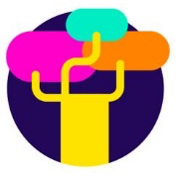By Rob Byrne, Science Policy Research Unit (SPRU), University of Sussex
We are now into phase three of our project, Transforming Climate Innovation Ecosystems through Inclusive Transdisciplinarity (TransCIIT). In a series of blogs posted on the ACTS website, starting with an overview, you can read how TransCIIT phase two unfolded.
For phase three, our main goals are to refine the student-entrepreneur matchmaking service we piloted in phase two and start to institutionalize the service in Kenya: (1) in other organizations, and (2) at the national level.
From our experience of piloting the student-entrepreneur matchmaking in 2022, it is clear there is an aching need for such a service in Kenya, and probably elsewhere in Africa, given that the innovation challenges of small and medium-sized enterprises (SMEs) receive little support in standard science, technology and innovation (STI) policy interventions, and postgraduate students struggle to find opportunities to apply their knowledge beyond the classroom. TransCIIT phase two was able to develop a basis upon which to address this aching need. But we must learn from this experience, refine the intervention, and seek to institutionalize it beyond the project partners Kenya Climate Innovation Center (KCIC) and Jaramogi Oginga Odinga University of Science and Technology (JOOUST).
We have now started this learning process by, first, interviewing the students and entrepreneurs involved in phase two and, second, by running a focus-group discussion that brought those same participants together. The results of these two investigations are currently being analyzed and will be disseminated in future blogs. For now, the headline findings are that the matchmaking website we developed in phase two is useful but could be significantly improved, and the broader matchmaking service worked well for both students and entrepreneurs but could also be significantly improved. The details underneath these headline findings will help us to refine the matchmaking service. The results from our investigations will provide the evidence we can bring to discussions with innovation ecosystem stakeholders in other organizations and at the national level. Reflections on these discussions will also be disseminated in future blogs.
As we progress through the remainder of phase three – up to the end of January 2024 – we can work with the evidence, materials, and experience we have gained so far, and in discussions with various stakeholders, to promote the adoption of the matchmaking service among other higher education institutes (such as JOOUST) and ecosystem intermediaries (such as KCIC). We can bring policy actors into this broadening network so that we can work with them to define a strategy – and perhaps a roadmap – of how to embed such a service at the national level. Succeeding at the national level is a significant challenge but one that could be eased if we can align with other policy initiatives of similar intent and/or if we can take advantage of relevant policy windows of opportunity. In the latter case, given the focus of TransCIIT on women and youth employment, the opportunity lies in offering Kenyan policymakers a way to address an important national development goal.
Beyond moving the TransCIIT matchmaking service out to other organizations and up to the national level in Kenya, we hope to work through our South African partner University of Johannesburg to pilot the service in South Africa. Suppose the matchmaking service finds a similarly welcome response to what we have experienced in Kenya. In that case, we can expect to learn more about how the service could be promoted and institutionalized in many more contexts across the African continent.
There is lots to do and our ambitions are high, but the results so far are encouraging. As with the path we travelled in 2022, we invite you to follow our experience by reading this blog series.
 |

